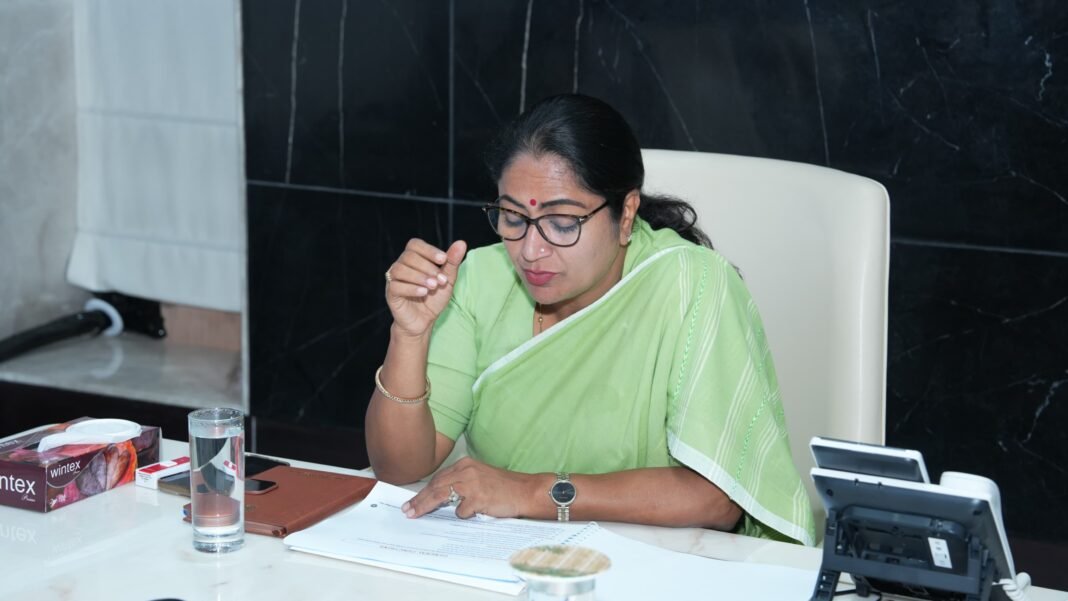Delhi Introduces School Fee Regulation Bill Amid Parental Protests
In a major step toward reforming the fee regulation regime of private schools, the Delhi government has released a draft version of the Delhi School Education (Transparency in Fixation and Regulation of Fees) Bill, 2025, which is set to be tabled in the upcoming monsoon session of the Assembly beginning Monday. The proposed bill, aimed at bringing transparency and accountability in fee structures of private unaided schools, comes in the wake of rising public discontent over steep and unregulated fee hikes.
Chief Minister Rekha Gupta on Saturday announced the bill’s scheduled introduction, describing it as a landmark move toward strengthening Delhi’s education framework and addressing long-standing concerns of parents. “This bill is a decisive step towards making Delhi’s education system more robust and inclusive,” Gupta said in a post on social media platform X.
Approved by the Delhi Cabinet back in April, the draft bill covers all 1,677 private unaided schools operating in the capital. Its key objectives include ensuring fair fee determination, introducing severe penalties for regulatory breaches, and institutionalising parental involvement through a structured, multi-level regulatory mechanism.
Major Reforms Proposed
The draft bill outlines three central reforms:
-
Transparent fee determination,
-
Stringent penalties for violations, and
-
A participatory framework involving parents.
Under Section 8, the bill provides detailed parameters that schools must consider when deciding fee amounts. These include the institution’s location, infrastructure quality, facilities provided, academic standards, and operational expenditures like administration and maintenance.
Section 12 deals with enforcement and penalties. If a school is found violating the provisions—such as increasing fees without approval—it could face fines ranging from ₹1 lakh to ₹10 lakh. Additionally, schools that have charged unauthorized fees must refund the excess amount within 20 days. Repeat violations could lead to the cancellation of the school’s recognition by the government.
Parent Representation Through Fee Regulation Committees
One of the bill’s standout features is the proposed three-tier fee regulation structure, which establishes committees at the school, district, and state levels. Each committee will include parental representation, giving families a formal role in overseeing fee-related decisions. Education Minister Ashish Sood hailed the bill as “the most democratic in nature,” saying it includes all relevant stakeholders and emphasizes consensus-based decision-making.
Mixed Reactions from Stakeholders
The response to the bill has been mixed. While some education leaders have welcomed the proposed changes, others have called for further clarity and modifications.
Jyoti Arora, principal of Mount Abu Public School in Rohini, expressed hope that the bill would ensure fairness for both schools and families. “We sincerely hope the bill reflects the spirit of mutual welfare—for both parents and private unaided schools,” she said.
However, certain provisions have sparked concern among parents and activists. One contentious point is the definition of an “aggrieved parents group”, which allows formal complaints only when at least 15% of parents from a particular class or school come together. Divya Mattey, a parent from DPS Dwarka, argued that this threshold is too high and could deter genuine grievances from being raised effectively.
Activist Ashok Agrawal also criticized the bill, questioning the financial impact on parents if fines are imposed on schools. “Who will ultimately bear the burden of these penalties?” he asked, suggesting that schools might simply pass on the cost to families.
Political Disputes Surface
The bill has also reignited political clashes. AAP’s Delhi unit president Saurabh Bharadwaj questioned whether the proposed legislation has provisions to address fee hikes that have already been implemented this year. He further demanded that the audit reports of all private schools be made publicly available for greater accountability.
In response, Education Minister Sood took a swipe at the AAP, saying the previous government’s claims of spearheading an education revolution were not backed by meaningful reforms.
As the monsoon session unfolds, the Delhi School Education (Transparency in Fixation and Regulation of Fees) Bill, 2025 is expected to be a major point of discussion, with its potential to redefine the relationship between private schools, parents, and the state.








